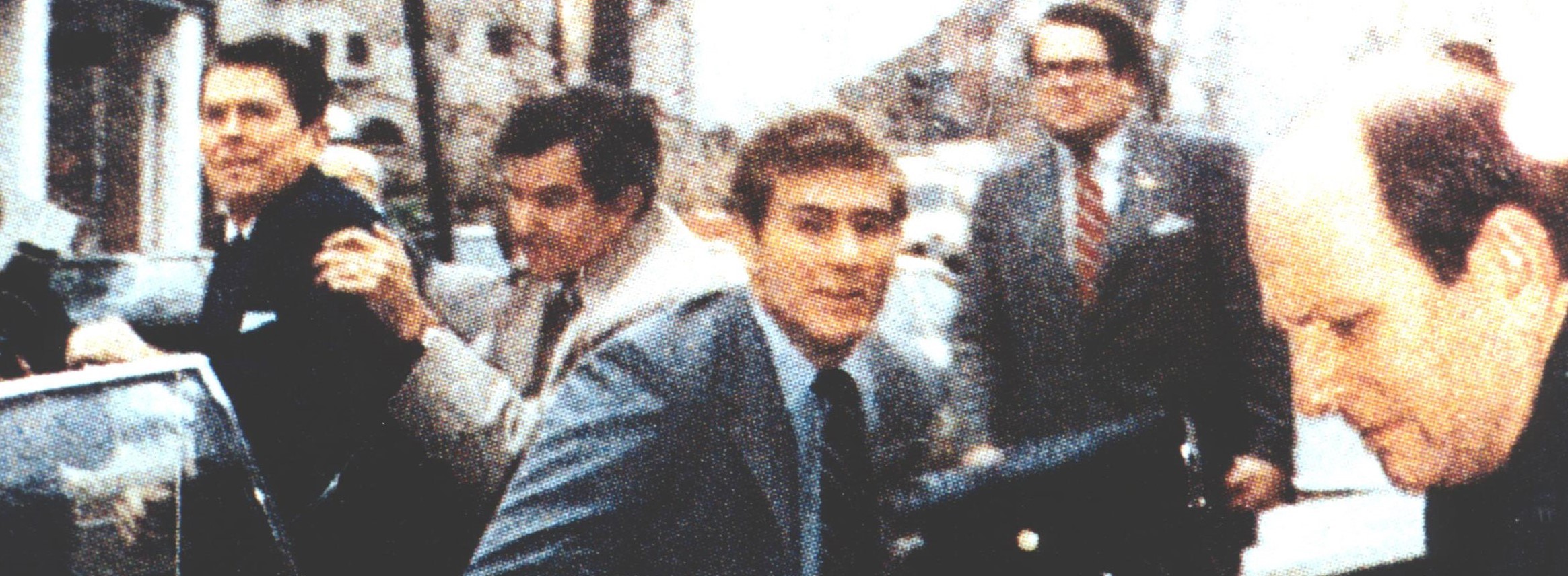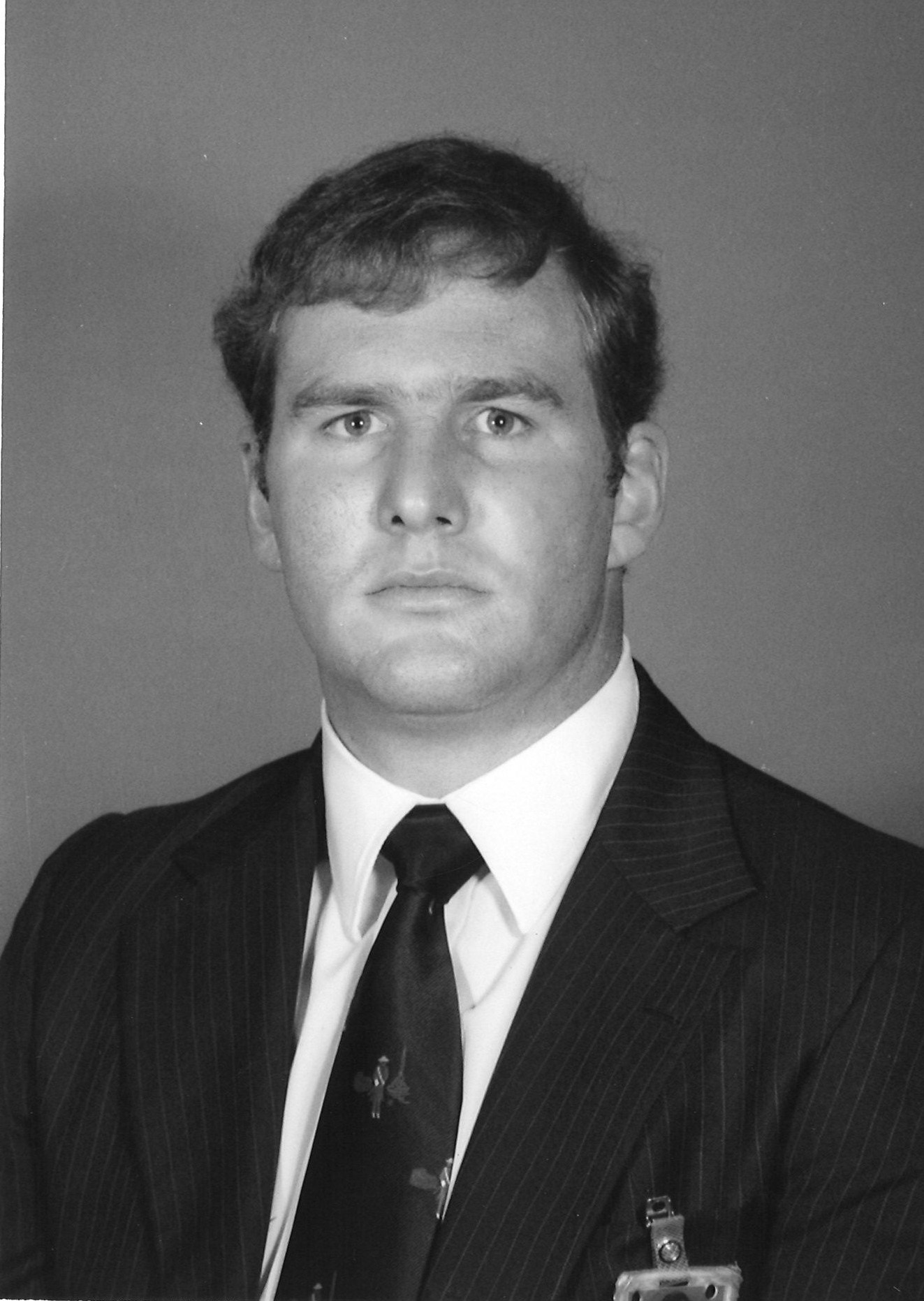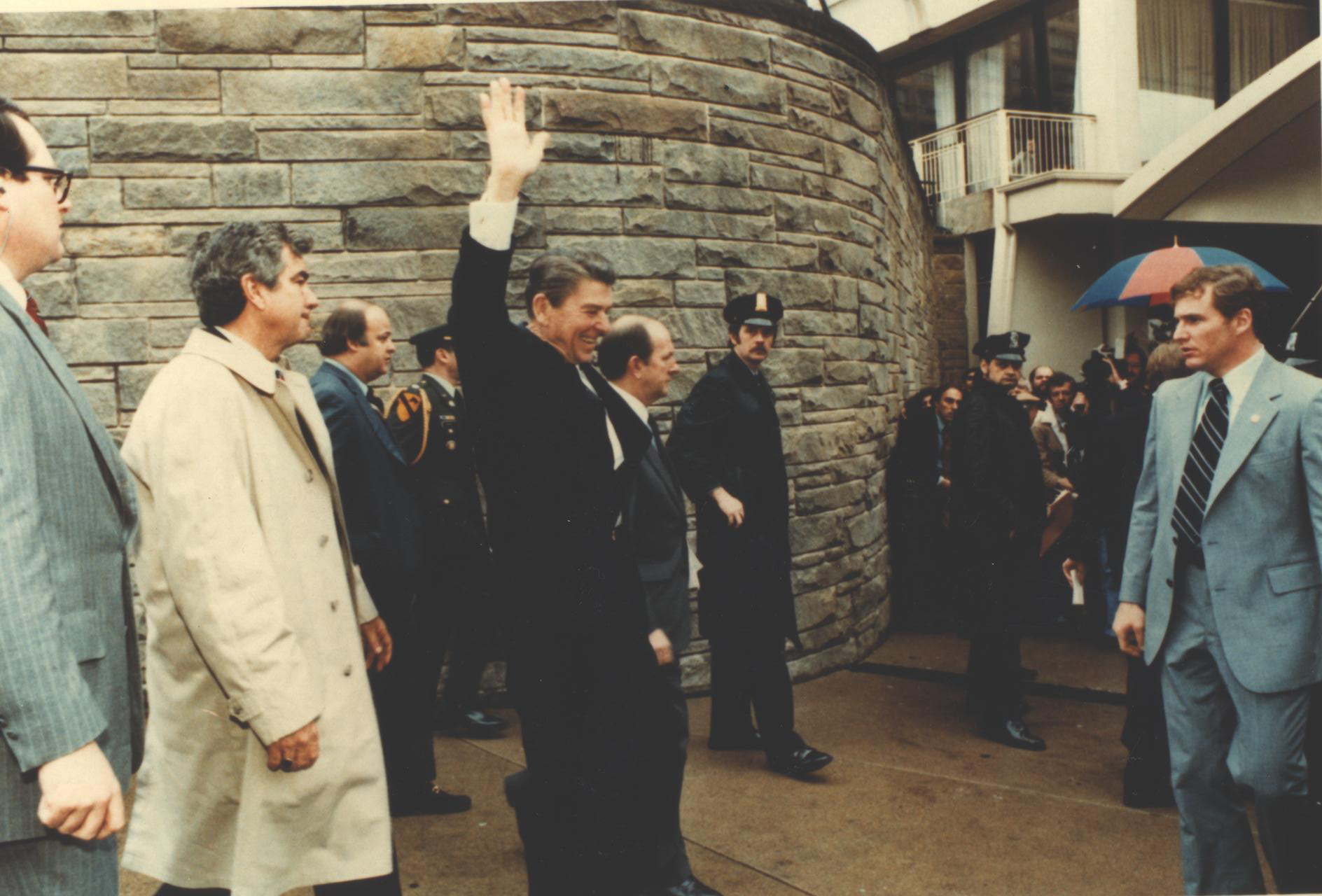
Retired Special Agent in Charge (SAIC) Tim McCarthy spoke candidly about taking a bullet for President Ronald Reagan more than four decades ago during the attempted assassination outside the Washington Hilton Hotel in Washington, D.C.
“The actions of the day shift of the Presidential Protective Division of the United States Secret Service on March 30, 1981, will be recorded in history as one of those selfless acts of courage under fire,” McCarthy told the U.S. Secret Service Office of Communication and Media Relations (CMR). “SAIC Jerry Parr and ATSAIC (Assistant to the Special Agent In Charge) Raymond Shaddick; we reacted to and withstood the attack of an assassin on the 40th President of the United States.”
McCarthy sat down late last year in the Chicago Field Office with CMR ATSAIC Christopher Pozerski. They discussed the day McCarthy was shot along with the President and two others. McCarthy also shared the story of his 22-year Secret Service career and his life before and after holding the title of special agent.
McCarthy was born in Chicago to a family with strong law enforcement ties. His father was a Chicago Police Department sergeant and worked in the intelligence division, where he interacted with special agents. He encouraged his son to consider the agency.
“I did like the two-fold mission of the Secret Service of investigations and protection,” McCarthy said. “Though I never dreamed early on that I would go to the Presidential detail. As far as I was concerned, I just wanted to stay in Chicago and work check cases.
McCarthy investigated fraudulent checks and counterfeiting for seven years in his hometown before being transferred to Washington, D.C. He briefly considered leaving the Secret Service to avoid the move before his father stepped in and insisted he honor his commitment.

He began his time in protection working on President Jimmy Carter’s campaign. After the incumbent was defeated, McCarthy moved to Reagan’s protective detail. Two months into his Presidency, Reagan was addressing a luncheon for union laborers when John Hinckley Jr. fired six shots as Reagan exited the hotel.
Two bullets ricocheted off the Presidential limousine. One bullet hit Reagan under his left arm, grazing a rib and narrowly missing his heart. Another hit White House Press Secretary James Brady in the head. Brady initially survived, though his death in 2014 was later ruled a homicide from the gunshot he sustained 33 years earlier.
Metropolitan Police Officer Thomas Delahanty was struck in the neck. He recovered, but the injury led to his disability retirement from the police department that November.
“There were a lot of casualties and carnage that day and other injuries that may not have been as obvious,” McCarthy said. “I am very proud to say that at the critical moment of the attack and afterward, every agent did his or her duty in the highest and best traditions of law enforcement. Duty first, last, and always.”
McCarthy was shot in the right chest as he turned toward Hinckley to shield the President. He and Reagan were taken to the same hospital. SAIC Parr and ATSAIC Shaddick pushed the President into the limousine and diverted the driver to George Washington University Hospital.
“What I did that day was solely based upon training… Could I ever do it again? Who knows?” said McCarthy, who recalled being assigned to the fateful detail after losing a coin toss to a co-worker.
McCarthy returned to the President’s detail three months after being shot. He completed his four-year stint in the Presidential Protective Division and returned to Chicago for two-and-a-half years before returning to the White House for another four years. This time, he again protected Reagan for three years and his successor, President George H.W. Bush, for one. 
He credits First Lady Nancy Reagan for the Secret Service’s widespread use of magnetometers. The devices were rolled out for Reagan’s first public appearance following the assassination attempt.
Reagan was set to give a commencement speech on May 17, 1981, at the University of Notre Dame, where he once portrayed football player George Gipp in a movie about legendary coach Knute Rockne. This performance earned the President the nickname “the Gipper.”
Despite concerns about long lines and attendees feeling treated like criminals, the machines were successfully used for the graduation and have since become commonplace.
McCarthy formed a connection with the Reagan family following the shooting. He remembered the last day of Reagan’s Presidency and the flight of the now-former first family back to California on Air Force One.
“We had time for maybe a five-minute goodbye,” McCarthy said. “Though on Air Force One, I sat with them, and we had great conversations and so forth.”
Separate from the assassination attempt, McCarthy also recounted several memorable moments from his time with the Secret Service, including a visit to Normandy, France.
He and his fellow agents entered the water at Omaha Beach to gain the perspective of American soldiers at the onset of the U.S. involvement in World War II.
“It was really almost breathtaking — historically so significant and really unbelievable. We all picked up rocks, kept them, and had them engraved with the date that we were there,” McCarthy said in his authentic Chicago accent.
McCarthy finished his Secret Service career as the SAIC of the Chicago Field Office. He then served as chief of the Orland Park Police Department in suburban Chicago for 27 years and briefly worked for a private security firm.
“I recently completed a fifty-year career in federal and local law enforcement. During that time, I witnessed many selfless acts of courage, bravery, and dedication to duty by the men and women in law enforcement. So many have been lost and so many injured over those years,” McCarthy said.
Now retired and writing a book about his time in law enforcement, McCarthy is grateful for his Secret Service career, including his two stints in Washington, D.C. When asked if he would do anything differently in retrospect, he offered a bit of humor.
“I guess I would have taken the 30th of March off,” he said with a laugh.

